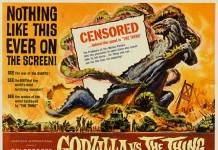 Kat Meyer has an article with this title on TOC today. She interviews Diesel ebook’s Kelley Allen. Here’s a snippet:
Kat Meyer has an article with this title on TOC today. She interviews Diesel ebook’s Kelley Allen. Here’s a snippet:
ToC: Given that the wholesale pricing and terms will be changing (and possibly will vary according to publisher), how much work will it require to make programming changes on your site?
KLA: Quite a lot of programming changes! Matter of fact, we heard that a few of the smaller eBook retailers decided to just drop out since it was too much for them. We have a blog posted here about the implications of Sales Tax. We had to install a very comprehensive tax table to our backend system. In addition, A5 allows for no discounts and thus we had to modify our entire system to identify any A5 and prevent discounts on the site.
ToC: How is this affecting your bottom line? Are you losing customers? Are customers being supportive/ buying titles that you DO have?
KLA: Our sales are down as a direct result. However, we have been relatively vocal about any updates to our customer base and thus our customers are supportive. We also found that sales of titles for the Indies are increasing by large numbers.


































From what I can tell: Macmillan and Hachette have thus far not done any deals with the wholesalers/distributors for e-book sales, although eBooks.com has been getting Hachette titles from somewhere for quite some time. HarperCollins, on the other hand, is fairly widely available. Penguin and Simon & Schuster are still hit-and-miss; Diesel has Penguin but not Simon & Schuster, while Books-a-Million has Simon & Schuster but not Penguin.
The new Borders e-book store doesn’t have any Penguin titles, even though it’s run by Kobo which does have Penguin titles.
The OverDrive library e-book lending system is currently not lending any Macmillan or Simon & Schuster titles.
Interestingly, OverDrive has Hachette titles available for library lending but not for sale, and has Simon & Schuster titles available for sale but not for library lending.
It’s been 3-1/2 months since the Agency Model went into effect, and considerably longer since it was announced. The extent of the disruption is incredible. Thanks, Steve Jobs.
This was my favourite quote:
“It’s ironic that the publishers who were going to level the playing field amongst retailers pretty much now only have their titles available on B&N and Amazon.” ~ anonymous indie ebook retailer
Doug, I don’t believe the “Agency 5” chose that construct because Steve Jobs made them do it. Quite the opposite – they went to Jobs and told him this was the system they wanted if they were going to put their books in his new store. They believed this would give them leverage over Amazon and allow them to force higher retail prices on Amazon.
The agency 5, whose customer for years has been the book store, thought they knew more about consumers than Amazon, who sells to consumers and has been studying consumer behavior obsessively for years. Not ab good move by the 5, and not Job’s fault … Nit his task to save them from themselves.
Ric, the evidence is quite clear that it’s Apple’s initiative. The iBooks store will not carry any titles from any publisher that does not use the Agency Model. If this was the publishers’ idea, why would Apple bar Random House from his store, hmm??
But my big complaint isn’t that the Agency Model went into effect, it’s that it was done in a way that was designed to be as disruptive as possible, thereby temporarily or permanently eliminating as many of Apple’s e-book competitors as possible. And it’s doing a handsome job of that.
I’d classify today’s e-book dealers (US/Canada) into these tiers:
• Amazon carries almost everything
• B&N carries titles from all of the ‘Big 6’ and some smaller publishers
• Sony and Kobo carry titles from all of the ‘Big 6’ and some smaller publishers, but HarperCollins and Simon & Schuster titles are required to be sold at a higher price than elsewhere (at least in the US)
• Apple has the Agency 5 titles but not much else
• Stores like Diesel and Books-A-Million are missing many of the Agency 5 titles
• Stores like Powell’s and Fictionwise don’t have any of the Agency 5 titles.
Borders is currently very short on Penguin titles, but it looks like they’ll eventually make it into the second tier with B&N. We’ll see where they shake out.
Anyway, there’s little reason for the consumer to bother with the stores in the bottom two tiers any more. Those stores don’t have the titles and they don’t have the prices. Unless Google Editions actually can do something for the small stores, we’re soon going to be down to just Amazon, B&N, Apple, Sony, and Kobo/Borders.
A side effect of this—or at least I think it’s just a side effect—is that the Adobe EPUB format is losing ground to proprietary formats. Amazon, B&N, and Apple all use proprietary DRM (B&N’s is de facto proprietary). Sony and Kobo sell Adobe EPUB, but they’re price-hobbled in the US. Borders will probably become the flagship store for Adobe EPUB in the US. The OverDrive library lending service—another Adobe EPUB source—no longer lends Macmillan or Hachette titles. Since you can’t read Adobe EPUB e-books on an iPad because Steve Jobs won’t allow Flash on there, I’m sure that Jobs is smirking about the hit to Adobe EPUB, too.
Doug says:
“Anyway, there’s little reason for the consumer to bother with the stores in the bottom two tiers any more. Those stores don’t have the titles and they don’t have the prices. ”
I don’t agree with this at all. In fact, I almost always use these stores in the bottom tiers since they provide:
1. Often better pricing per inkmesh, ebookprice.info, or metaebooks.com comparisons
2. Books that I want to buy – ie, none of the agency 5 since I won’t pay the greedy prices charged for those titles
3. Often DRM free ebooks that don’t tie me to a particular platform or rely on some distant server
4. Don’t have to pay sales tax
I think the whole A5 fiasco is a complete disaster. The publishers are frankly idiots with their heads in the sand. They should take note of Amazon and Apple – your customers are the readers. Period. If you screw them, you are cutting off your nose to spite your face.
I also think that this is just driving up piracy. It’s pretty easy to find pirated copies of the majority of the A5 books should you not like the politics of the current situation. When googling for legal versions of these ebooks, the pirated links all come up, trying to woo one to the dark side.
The A5 ability to restrict where their books are sold will end soon, when the competition people get their teeth into them. The EU is already looking at it.
In the past small sellers were restricted by physical space and stocking costs. These don’t apply to eBooks …
Okay Doug, we choose to differ on how we see it. I believe the big six went to Apple with the objective of finding a way to stop Amazon’s “deep discounting” of their titles, figuring that Apple needed them more than they needed Apple. Whether Steve Jobs tossed the agency idea into the ring or the publishers did will eventually show up in someone’s memoirs; the key is that 5 of the 6 went with it and Jobs agreed to make it the standard for iBooks.
Another thing that makes me believe this was a publisher-led idea is that the “deal” with Apple expires next year (as Paul Biba pointed out a while back). Unlike the Agency 5, for whom retail stores have = “the customer” for a long, long time, Apple has plenty of experience selling to consumers and would understand the problems the agreement would bring on the 5.
Unless some unlikely manifestation of dumb consumer behaviour erupts in the next few months, I figure the 5 will see fewer sales than the anticipated from the pricing agreement and Jobs will be able to pressure them to come to their senses (by not enforcing the arrangement on other ebook vendors after the agreement expires). Amazon must be loving this.
The bigger problem is definitely the enforced (by the publishers) application of DRM systems to ebooks. I do not think there is anything fundamentally wrong with the EPUB standard and I would far rather have the standard than not. I view the addition of DRM code and (to a lesser extent) the enforcement by some ereaders of css schemes to override the one used by a publisher as very similar to the early days of the web, when MS and others were trying to hijack the internet page by employing non-standard code in their browser rendering engines. With HTML5 gaining traction, moving EPUB from xhtml/xml to 5 should be simple and will make much easier a lot that is difficult in current ebooks.
I made a misstatement above. Correction follows:
OverDrive does not wholesale Macmillan and Hachette titles. The OverDrive library lending service no longer lends Macmillan or Simon & Schuster titles.
I got my wires crossed on that. My apologies.